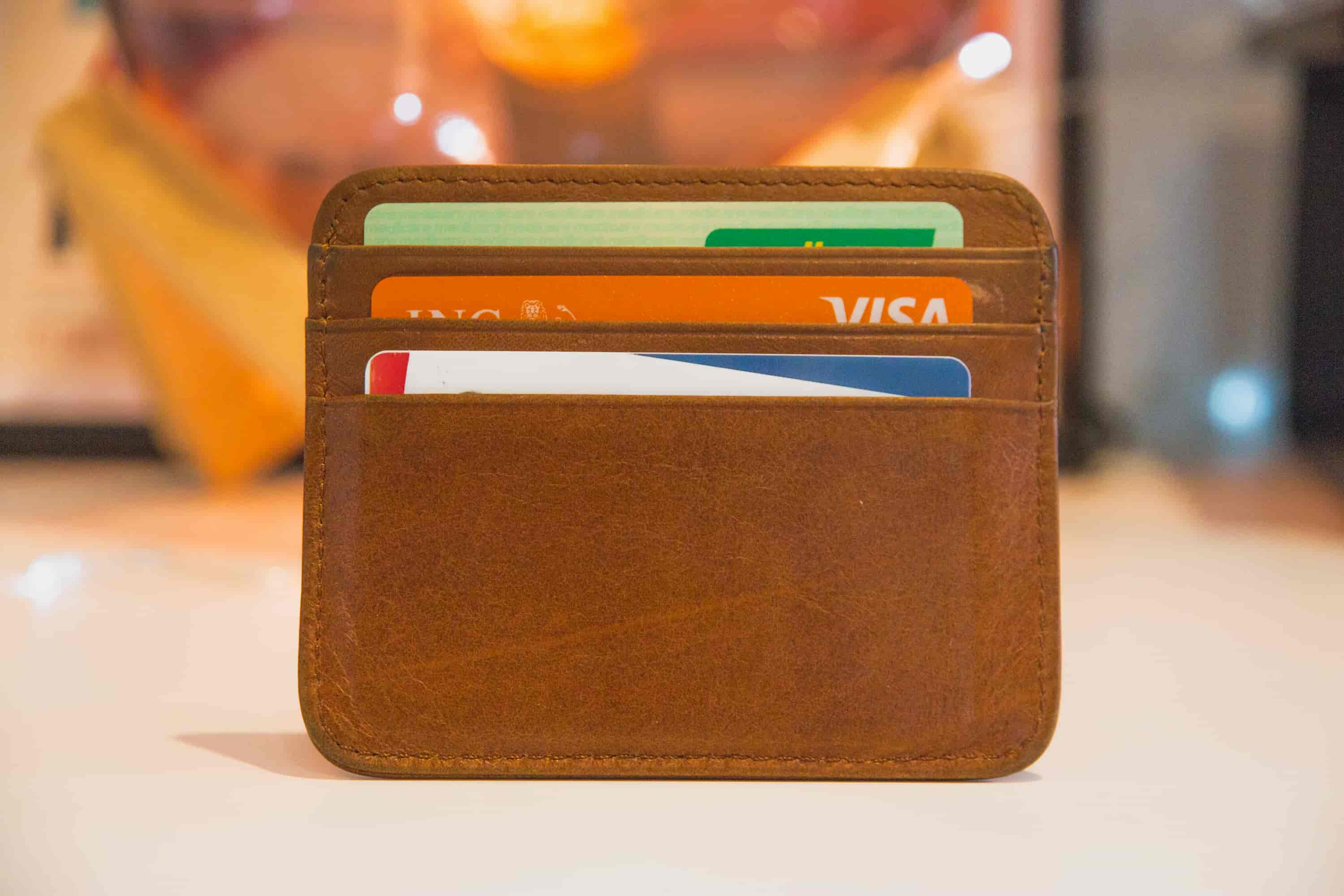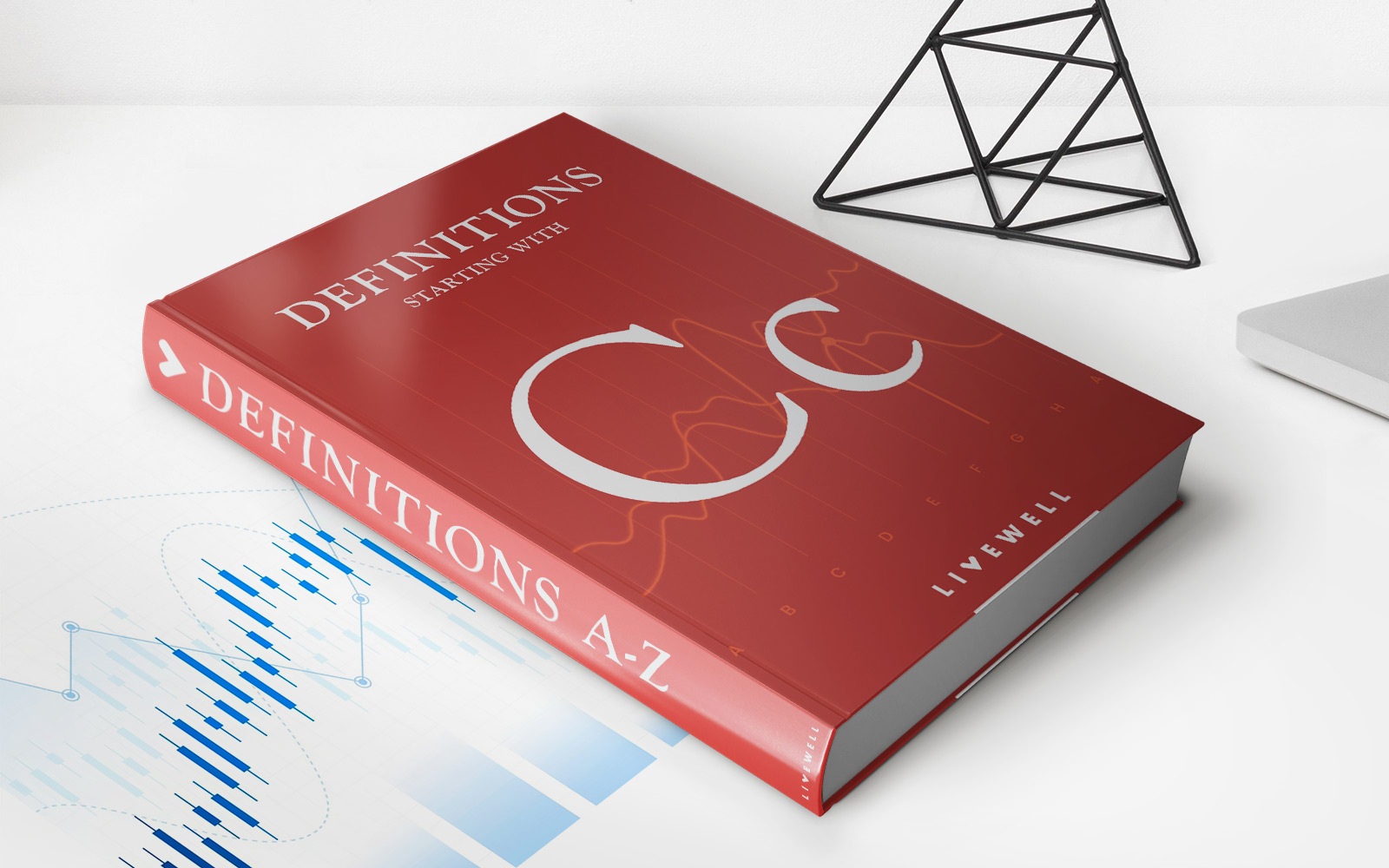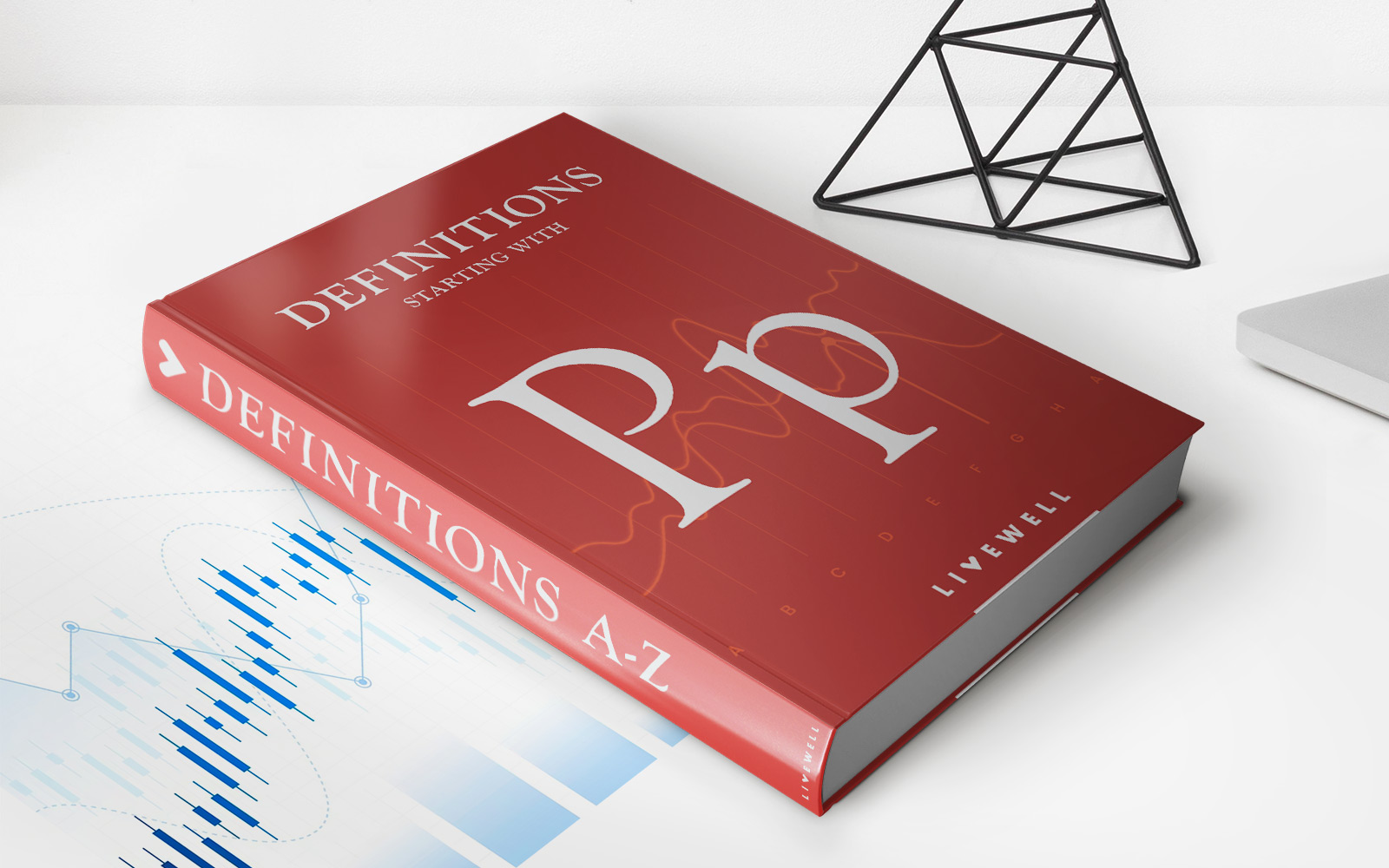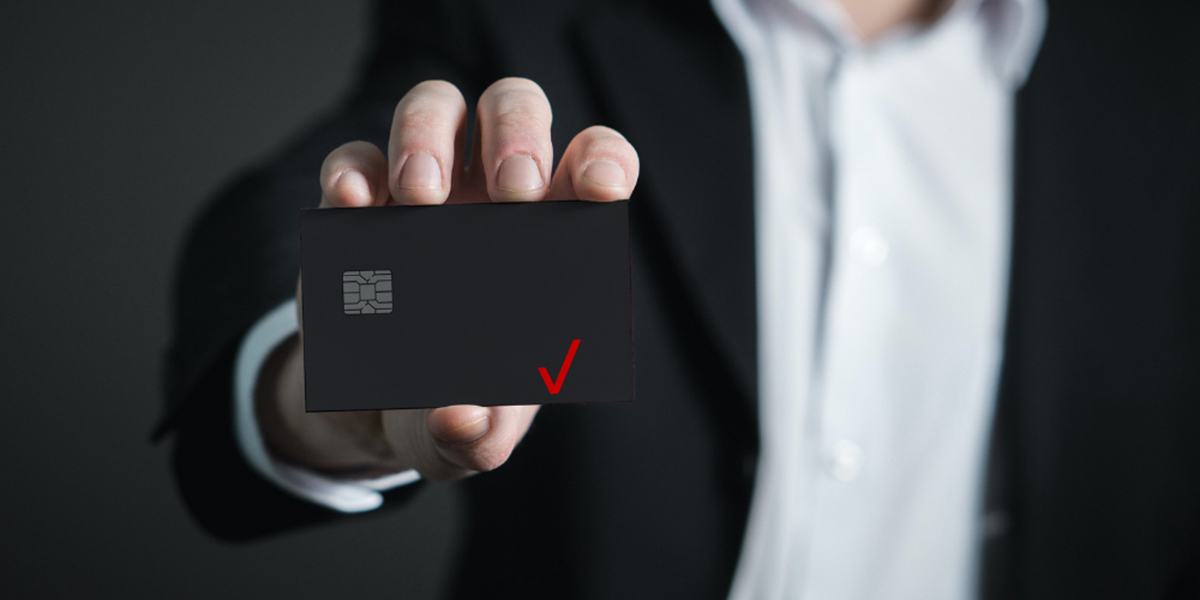

Finance
How To Build Credit With ITIN Number
Published: January 12, 2024
Learn how to build credit with an ITIN number and improve your financial standing. Our expert tips and guidance will help you navigate the world of finance successfully.
(Many of the links in this article redirect to a specific reviewed product. Your purchase of these products through affiliate links helps to generate commission for LiveWell, at no extra cost. Learn more)
Table of Contents
- Introduction
- What is an ITIN number?
- Why is building credit important?
- How to establish credit with an ITIN number
- Applying for an ITIN
- Opening a bank account
- Obtaining a secured credit card
- Building credit with small loans
- Becoming an authorized user
- Paying bills on time
- Monitoring your credit score
- Conclusion
Introduction
Building credit is an essential step in achieving financial security and freedom. It allows you to qualify for loans, mortgages, and credit cards with favorable terms and interest rates. However, for individuals who don’t have a Social Security number, establishing credit can seem like a daunting task. That’s where an Individual Taxpayer Identification Number (ITIN) comes in.
An ITIN is a nine-digit identifier issued by the Internal Revenue Service (IRS) for individuals who are not eligible to obtain a Social Security number. It is commonly used by non-resident aliens, undocumented immigrants, and individuals who have dependents without a Social Security number. While an ITIN is primarily used for tax purposes, it can also be a valuable tool for building credit.
In this article, we will explore the importance of building credit and how individuals with an ITIN can go about establishing a solid credit history. While the process may require some additional steps and patience, it is definitely achievable. Let’s dive in and understand how to build credit with an ITIN number.
What is an ITIN number?
An Individual Taxpayer Identification Number (ITIN) is a unique nine-digit identifier issued by the Internal Revenue Service (IRS) for individuals who are not eligible to obtain a Social Security number. It is primarily used by non-resident aliens, undocumented immigrants, and individuals who have dependents without a Social Security number.
The IRS created the ITIN program to ensure that everyone, regardless of immigration status, can fulfill their tax obligations. The ITIN helps individuals file their tax returns, claim tax credits, and comply with tax laws. It is important to note that an ITIN is not a valid form of work authorization or a pathway to citizenship or permanent residency.
To obtain an ITIN, individuals must complete Form W-7, Application for IRS Individual Taxpayer Identification Number. The form requires individuals to provide supporting documents, such as a federal tax return, proof of identity, and foreign status documentation. Once the application is submitted, it usually takes around six to eight weeks for the IRS to process and issue the ITIN.
Having an ITIN opens several doors for individuals in terms of financial transactions and access to certain services. It allows individuals to report income, open bank accounts, apply for credit cards, file taxes, and build credit history. While an ITIN is not directly linked to credit reporting agencies, it can still be used to establish credit.
Now that we understand what an ITIN is, let’s explore why building credit is important and how individuals with an ITIN can benefit from it.
Why is building credit important?
Building credit is crucial for individuals who want to achieve financial stability and reach their long-term goals. A strong credit history opens doors to opportunities such as obtaining loans, renting an apartment, and even getting a job in some cases. Here are some key reasons why building credit is important:
- Access to financial products: Having a good credit score enables you to qualify for credit cards, personal loans, auto loans, and mortgages. These financial products provide you with the funds you need for various purposes, such as buying a car, starting a business, or purchasing a home.
- Better interest rates: With a strong credit history, you are more likely to secure loans and credit cards with favorable interest rates. Lenders view individuals with good credit as less risky, resulting in lower borrowing costs and potentially saving you thousands of dollars over time.
- Rental applications: Many landlords and property management companies perform credit checks as part of their rental application process. A positive credit history can increase your chances of being approved for a rental property and may even help you negotiate better lease terms.
- Employment opportunities: Some employers conduct credit checks as part of their hiring process, especially for positions that involve financial responsibilities or access to sensitive information. A good credit score can enhance your employability and demonstrate your financial responsibility and trustworthiness.
- Insurance premiums: Insurance companies often consider credit history when determining premium rates for auto, home, or renter’s insurance. Maintaining good credit can result in lower insurance premiums, saving you money on these essential expenses.
- Building a solid financial foundation: Building credit is a stepping stone toward achieving financial goals. It establishes a solid foundation for future financial endeavors, such as obtaining larger loans for significant investments or starting a business.
By understanding the importance of building credit, individuals with an ITIN can take proactive steps to establish and improve their credit history. In the following sections, we will explore how to build credit with an ITIN number and pave the way for a stronger financial future.
How to establish credit with an ITIN number
Establishing credit with an ITIN number may require some additional steps compared to those with a Social Security number, but it is certainly possible. Here are several strategies individuals with an ITIN can utilize to start building credit:
- Applying for an ITIN: The first step is to obtain an ITIN if you don’t already have one. Complete Form W-7 and submit it to the IRS along with the required supporting documents. Once you receive your ITIN, you can start using it to establish credit.
- Opening a bank account: Consider opening a checking or savings account at a bank or credit union. While this doesn’t directly contribute to your credit history, it establishes a relationship with a financial institution, which can be beneficial when applying for credit later on.
- Obtaining a secured credit card: Secured credit cards are an excellent option for building credit. With a secured card, you provide a security deposit as collateral, which becomes your credit limit. Use the card responsibly by making small purchases and paying your balance in full each month. Over time, this will demonstrate your creditworthiness and help establish a positive credit history.
- Building credit with small loans: Consider applying for a small loan, such as a credit-builder loan or a secured personal loan. These types of loans are designed to help individuals build credit. Make timely payments on the loan to demonstrate your ability to handle debt responsibly.
- Becoming an authorized user: If you have a family member or friend with a good credit history and who is willing to add you as an authorized user on their credit card, leverage this opportunity. As an authorized user, the positive payment history of the primary cardholder can be reported on your credit report, helping you establish credit.
- Paying bills on time: Consistently paying your bills, such as utilities, rent, and phone bills, on time demonstrates your reliability and financial responsibility. While these payments may not directly impact your credit score, some credit reporting agencies consider alternative data, including payment histories, when calculating credit scores.
- Monitoring your credit score: Keep a close eye on your credit score and credit report to track your progress and identify any errors or fraudulent activity. Regular monitoring allows you to address any issues promptly and can help you make informed decisions to improve your credit.
By following these strategies, individuals with an ITIN can gradually establish a solid credit history and improve their creditworthiness. It’s important to be patient and consistent in your efforts, as building credit takes time. Remember, responsible credit management and on-time payments are key to building a strong credit foundation.
Applying for an ITIN
The first step in building credit with an ITIN is to obtain an Individual Taxpayer Identification Number (ITIN). Here’s what you need to know about applying for an ITIN:
Gather necessary documents: Before applying for an ITIN, collect the required documents. This includes completing Form W-7, Application for IRS Individual Taxpayer Identification Number. You will also need to provide proof of identity and foreign status, such as a passport or national identification card.
Submit your application: Once you have all the necessary documents, submit your application to the IRS. You can do this either by mailing the documents or by visiting an IRS Taxpayer Assistance Center. It’s crucial to ensure that all information on your application is accurate and complete to avoid any delays in processing.
Wait for processing: After submitting your application, it typically takes around six to eight weeks for the IRS to process and issue your ITIN. During this time, it’s important to be patient and avoid contacting the IRS for status updates unless it has been more than eight weeks since your submission.
Receive your ITIN: Once your application is approved, the IRS will issue your ITIN, which is a nine-digit number that will serve as your identification for tax purposes. Keep this number safe and secure, as you will need it for various financial transactions and credit-building activities.
Applying for an ITIN is the first pivotal step in establishing credit as an individual without a Social Security number. It provides you with a unique identifier that allows you to engage in financial activities and start building a credit history.
Now that you have your ITIN in hand, let’s move on to the next step: opening a bank account.
Opening a bank account
Once you have obtained your ITIN, the next step in building credit is to open a bank account. Opening a bank account provides a foundation for your financial transactions and establishes a relationship with a financial institution. Here’s what you need to know about opening a bank account with an ITIN:
Research different banks: Start by researching different banks and credit unions in your area. Look for institutions that offer accounts specifically designed for individuals without a Social Security number, as they may be more familiar with accepting ITINs.
Gather required documents: Each bank may have specific requirements for opening an account. Generally, you will need to provide your ITIN, proof of identity (such as a passport or identification card), proof of address (such as a utility bill or lease agreement), and potentially other additional documents, as per the bank’s policies.
Visit the bank: Once you have gathered all the required documents, visit the bank’s branch in person to open the account. The bank representative will guide you through the process and assist you in completing the necessary paperwork.
Choose the right account type: Select a bank account type that suits your needs. Options may include a basic checking account, a savings account, or a combination of the two. Consider factors such as monthly fees, minimum balance requirements, ATM access, online banking services, and customer service options when making your decision.
Make regular deposits: Once your account is open, start making regular deposits to showcase your ability to manage money and build a positive banking history. Consistently maintaining a balance and demonstrating responsible financial behavior can contribute to the overall strength of your credit profile.
Opening a bank account not only provides a safe place to manage and store your money but also establishes a financial relationship, which can be beneficial when applying for credit in the future. It demonstrates stability and responsibility, which are valuable qualities that lenders look for when assessing creditworthiness.
Now that you have successfully opened a bank account, it’s time to explore the next step: obtaining a secured credit card.
Obtaining a secured credit card
Obtaining a secured credit card is an effective way to build credit with an ITIN. A secured credit card requires a security deposit, which serves as collateral and determines your credit limit. Here’s what you need to know about obtaining a secured credit card:
Research secured credit card options: Start by researching different financial institutions that offer secured credit cards. Look for options specifically designed for individuals with limited credit history or no Social Security number. Compare factors such as fees, interest rates, reporting to credit bureaus, and any additional benefits or features.
Ensure the card reports to credit bureaus: It’s important to select a secured credit card that reports your payment history to the major credit bureaus. This is crucial because timely payments and responsible use of the card will contribute to building a positive credit history.
Provide the required deposit: To obtain a secured credit card, you will need to provide a security deposit. The deposit amount typically determines your credit limit. The deposit is usually held by the financial institution in a separate account and is refundable when you close the account or upgrade to an unsecured credit card.
Use the card responsibly: Once you have received your secured credit card, use it responsibly to build a positive credit history. Start by making small purchases that you can comfortably repay in full each month. This demonstrates responsible credit management and helps establish a track record of on-time payments.
Make timely payments: It’s crucial to make timely payments on your secured credit card. Delaying or missing payments can negatively impact your credit score. Establish a routine of making at least the minimum payment by the due date to avoid any late fees and maintain a positive payment history.
Monitor your credit and progress: Keep a close eye on your credit report and credit score to track your progress. Regularly checking your credit allows you to identify any errors, discrepancies, or signs of identity theft. It also helps you understand how your credit-building efforts are impacting your credit profile.
Obtaining a secured credit card not only provides you with a tool to build credit but also demonstrates your ability to manage credit responsibly. With consistent and responsible use, you can establish a positive credit history and work towards obtaining an unsecured credit card in the future.
Now that you have successfully obtained a secured credit card, let’s move on to the next step: building credit with small loans.
Building credit with small loans
Building credit with small loans is another effective strategy for individuals with an ITIN to establish a positive credit history. While it may be challenging to qualify for traditional loans without a Social Security number, there are alternative options available. Here’s how you can build credit with small loans:
Explore credit-builder loans: Credit-builder loans are specifically designed to help individuals build credit. These loans require you to make regular payments over a fixed period of time. The loan amount is typically deposited into a secured savings account, and as you make payments, the lender reports your positive payment history to the credit bureaus, boosting your credit profile.
Consider secured personal loans: Similar to secured credit cards, secured personal loans require you to provide collateral, such as a savings account or a certificate of deposit. These loans can be helpful in building credit, as they demonstrate your ability to manage and repay a loan responsibly. Make sure to make timely payments, as the success of these loans depends on consistent repayment.
Utilize microloans or credit union loans: Some microfinance organizations and credit unions offer loans specifically for individuals without a Social Security number. These loans are typically small in size and have more flexible eligibility requirements. Research and reach out to local institutions that may offer such loan options.
Make timely loan payments: Whether you obtain a credit-builder loan, secured personal loan, or alternative loan, it is crucial to make timely payments. Consistently making payments on time demonstrates your commitment to responsible credit management and helps build a positive credit history over time.
Monitor your progress: As with any credit-building strategy, it’s important to monitor your credit progress regularly. Keep an eye on your credit reports and scores to track any changes and ensure that your loan payments are being reported accurately. Checking your credit allows you to identify any potential errors or discrepancies that may need to be addressed.
Building credit with small loans may require some research and effort, but it can have a positive impact on your creditworthiness. By leveraging credit-builder loans, secured personal loans, or alternative loan options, you can establish a solid credit history and improve your credit profile.
Now that you have explored building credit with small loans, let’s move on to the next step: becoming an authorized user.
Becoming an authorized user
Becoming an authorized user on someone else’s credit card can be a valuable strategy for building credit with an ITIN. When you become an authorized user, the primary cardholder’s positive payment history and credit utilization are typically reported on your credit report. Here’s what you need to know about becoming an authorized user:
Choose the right primary cardholder: Look for a family member or close friend who has a good credit history and is willing to add you as an authorized user on their credit card. It’s important to select someone who manages their credit responsibly and has a history of on-time payments.
Speak to the primary cardholder: Have a conversation with the primary cardholder to discuss the arrangement. Make sure both parties understand the responsibilities and expectations. Keep in mind that as an authorized user, you will have access to the credit card, but you are not financially responsible for the debt.
Ensure reporting to credit bureaus: Verify with the credit card issuer whether they report authorized user activity to the credit bureaus. Not all credit card companies report this information, so it’s important to confirm that your activity as an authorized user will be reflected on your credit report.
Establish guidelines and boundaries: Set some guidelines with the primary cardholder to maintain responsible credit card usage. Determine how the card will be used and establish spending limits or restrictions if necessary. Open communication and trust are key to ensuring a positive experience for both parties.
Monitor your credit: Regularly check your credit report to ensure that the primary cardholder’s positive payment history is being reported accurately. This allows you to track your progress and make sure that the authorized user account is contributing to your credit-building efforts.
While becoming an authorized user can be a helpful strategy for building credit, it’s important to approach this arrangement with caution and trust. Make sure to maintain responsible credit habits and communicate effectively with the primary cardholder to ensure a successful credit-building experience.
Now that you are acquainted with becoming an authorized user, let’s move on to the next step: paying bills on time.
Paying bills on time
Paying your bills on time is a crucial habit to develop when building credit with an ITIN. Consistently making timely payments demonstrates your financial responsibility and helps establish a positive credit history. Here’s what you need to know about paying bills on time:
Create a budget: Start by creating a budget to ensure that you have sufficient funds to cover your monthly expenses. Prioritize bill payments and allocate funds accordingly. By having a clear understanding of your income and expenses, you can proactively plan and avoid missing payments.
Set up reminders and automate payments: Take advantage of technology to help you stay on top of your bill payments. Set up reminders on your phone or computer to ensure that you never miss a due date. Additionally, consider automating your payments through your bank’s online bill pay service. This way, your bills are paid automatically, reducing the risk of forgetting or being late with payments.
Utilize online banking: Online banking platforms provide a convenient way to manage and track your finances. Take advantage of these tools to monitor your account balances, review statements, and schedule payments. This allows you to have a clear overview of your financial obligations and make timely payments.
Opt for electronic billing: Many service providers offer the option for electronic billing, where bills are delivered directly to your email. Opting for electronic billing can help you stay organized and ensure that you receive your bills promptly. It also eliminates the risk of bills getting lost in the mail.
Consider setting up automatic minimum payments: If you are concerned about missing payments, you can set up automatic minimum payments for your credit cards or other accounts. While it’s always best to pay the full balance, setting up automatic minimum payments ensures that you at least make the minimum required payment on time, preventing late fees and negative impact on your credit.
Monitor your due dates: Stay vigilant about your various bill due dates and ensure you pay them before the deadlines. Late payments, even by a few days, can have a negative impact on your credit score. Consider creating a calendar or using a financial management app to keep track of due dates and avoid any potential late payments.
By prioritizing bill payments and ensuring they are made on time, you show lenders and credit bureaus that you are a responsible borrower and can be trusted with credit. Timely bill payments form the foundation of a strong credit history and demonstrate your ability to manage financial obligations effectively.
Now that you understand the importance of paying bills on time, let’s move on to the final step: monitoring your credit score.
Monitoring your credit score
Monitoring your credit score is an essential part of building credit with an ITIN. Regularly checking your credit score allows you to track your progress, identify any errors or discrepancies, and make informed decisions to improve your credit profile. Here’s what you need to know about monitoring your credit score:
Understand your credit report and score: Familiarize yourself with the components of a credit report and how credit scores are calculated. Understand the factors that impact your credit score, such as payment history, credit utilization, length of credit history, and types of credit. This knowledge will help you interpret your credit report and identify areas for improvement.
Check your credit report regularly: Obtain a free copy of your credit report from each of the major credit bureaus, Equifax, Experian, and TransUnion, at least once a year. Review the information carefully, ensuring its accuracy and identifying any potential errors or discrepancies. Monitoring your credit report helps you spot any unauthorized accounts or fraudulent activities.
Sign up for credit monitoring services: Consider enrolling in a credit monitoring service that provides regular updates on changes to your credit report, such as new accounts or inquiries. These services can also alert you to any suspicious activity or potential identity theft.
Monitor your credit utilization: Keep an eye on your credit utilization ratio, which refers to the amount of credit you are using compared to your credit limit. Aim to keep your credit utilization below 30% to maintain a healthy credit profile. High utilization can negatively impact your credit score, so paying down balances and keeping utilization low is important.
Use online credit score trackers: Many financial institutions and credit monitoring services offer online tools that allow you to track your credit score over time. Sign up for these services to regularly monitor your credit score and observe any positive changes resulting from your credit-building efforts.
Address any errors or discrepancies: If you notice any errors on your credit report, such as incorrect personal information or accounts that do not belong to you, take immediate action to dispute and rectify those errors. Contact the credit bureaus and provide the necessary documentation to support your claim.
Monitoring your credit score is crucial for staying informed about your credit health and progress. Regularly checking your credit score allows you to make adjustments to your credit-building strategies, identify areas for improvement, and take steps to enhance your overall creditworthiness.
With the final step of monitoring your credit score, you have now learned important strategies to build credit with an ITIN. By implementing these strategies consistently and responsibly, you can establish a solid credit history and improve your financial future.
Conclusion
Building credit with an ITIN may require some additional steps and effort, but it is definitely achievable. By following the strategies outlined in this article, individuals with an ITIN can establish a solid credit history and improve their creditworthiness over time.
Starting with obtaining an ITIN, opening a bank account, and obtaining a secured credit card, individuals can lay the foundation for building credit. By making timely payments on bills and small loans, as well as becoming an authorized user on a responsible individual’s credit card, individuals can further strengthen their credit profile.
Throughout this journey, it is crucial to monitor your credit score and ensure the accuracy of your credit report. Regularly checking your credit score allows you to track your progress, identify areas for improvement, and address any errors or discrepancies.
Remember, building credit takes time and patience. It’s important to practice responsible credit management, such as making timely payments and keeping credit utilization low. By doing so, individuals can establish a solid credit foundation and gain access to better financial opportunities, such as loans, mortgages, rental agreements, and even employment prospects.
Building credit with an ITIN is an empowering process that can unlock a world of financial possibilities. It is a valuable step towards achieving financial stability and reaching your long-term goals. So, embrace the journey, take advantage of the strategies outlined in this article, and work towards building a bright financial future.














